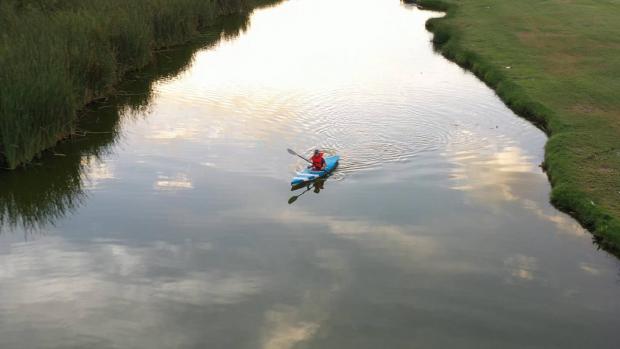
Breaking News
 Powerful Pro-life Ad Set to Air During Super Bowl 'Adoption is an Option' (Video)
Powerful Pro-life Ad Set to Air During Super Bowl 'Adoption is an Option' (Video)
 Even in Winter, the Sun Still Shines in These Citrus Recipes
Even in Winter, the Sun Still Shines in These Citrus Recipes
 Dates: The Ancient Fertility Remedy Modern Medicine Ignores Amid Record Low Birth Rates
Dates: The Ancient Fertility Remedy Modern Medicine Ignores Amid Record Low Birth Rates
 Amazon's $200 Billion Spending Shock Reveals Big Tech's Centralization Crisis
Amazon's $200 Billion Spending Shock Reveals Big Tech's Centralization Crisis
Top Tech News
 SpaceX Authorized to Increase High Speed Internet Download Speeds 5X Through 2026
SpaceX Authorized to Increase High Speed Internet Download Speeds 5X Through 2026
 Space AI is the Key to the Technological Singularity
Space AI is the Key to the Technological Singularity
 Velocitor X-1 eVTOL could be beating the traffic in just a year
Velocitor X-1 eVTOL could be beating the traffic in just a year
 Starlink smasher? China claims world's best high-powered microwave weapon
Starlink smasher? China claims world's best high-powered microwave weapon
 Wood scraps turn 'useless' desert sand into concrete
Wood scraps turn 'useless' desert sand into concrete
 Let's Do a Detailed Review of Zorin -- Is This Good for Ex-Windows Users?
Let's Do a Detailed Review of Zorin -- Is This Good for Ex-Windows Users?
 The World's First Sodium-Ion Battery EV Is A Winter Range Monster
The World's First Sodium-Ion Battery EV Is A Winter Range Monster
 China's CATL 5C Battery Breakthrough will Make Most Combustion Engine Vehicles OBSOLETE
China's CATL 5C Battery Breakthrough will Make Most Combustion Engine Vehicles OBSOLETE
 Study Shows Vaporizing E-Waste Makes it Easy to Recover Precious Metals at 13-Times Lower Costs
Study Shows Vaporizing E-Waste Makes it Easy to Recover Precious Metals at 13-Times Lower Costs
Pontos folding kayak weighs 7 pounds, and can be stuffed into a bag

That's why we've been seeing an increasing number of folding kayaks, and the Pontos is one of the lightest, smallest-folding models we've come across so far.
Currently the subject of an Indiegogo campaign, the Pontos was invented by Lubbock, Texas-based kayaker/entrepreneur Adam Mulsow. And while it measures 10.5 feet long by 29 inches wide when fully assembled (320 by 74 cm), it packs down into a package the size of a rolled-up two-person tent – and it reportedly weighs just 7 lb (3.2 kg).
At the heart of the Pontos is a frame made of individual 18-inch (457-mm) sections of carbon fiber tubing. These are connected by a length of shock cord running through them, along with custom-designed polymer fittings.
Once that frame is folded out into the shape, the kayak's waterproof skin is pulled tight around it, then zipped up across the top. The skin is made of TPU (thermoplastic polyurethane)-bonded nylon, with heavy-duty raft-grade 210 denier nylon used for the bottom, and a lighter-weight nylon utilized for the upper deck.
Finally, the Pontos' seat gets inflated and secured inside the cockpit. We've been told that the entire assembly process takes just five to seven minutes.
By way of comparison – weight-wise – the lightest of the popular Oru folded-polypropylene kayaks tips the scales at 20 lb (9 kg). That said, it's difficult to say how it and the Pontos would compare on other factors, such as durability, stability and tracking.

 Smart dust technology...
Smart dust technology...

